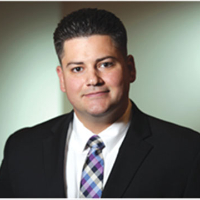Monroe Township RICO Act Lawyer, New Jersey
Sponsored Law Firm
-
 x
x

Click For More Info:
-
H. Scott Aalsberg, Esq.
39 Milltown Rd, East Brunswick, NJ 08816 » view mapCriminal Defense, DUI/DWI, Drug Crimes When Only the Best Defense Will Do
Our Lawyers are committed to getting you the best results. Our Firm has handled over 8000 matters for our clients and we have a 100% record of being ethically responsible.
800-918-8171  H. Scott Aalsberg East Brunswick, NJ
H. Scott Aalsberg East Brunswick, NJAttorney At Law - NJ, 1992
U of South Dakota, J.D. - 1991
 Frequently Asked Questions
Frequently Asked QuestionsThe Free Office Consultation and How it Can Help You!
 Contact UsEmail or Call 24/7
Contact UsEmail or Call 24/7How To Contact Our Attorneys To Get The Best Defense
Not enough matches for Monroe Township RICO Act lawyer.
Below are all Monroe Township Criminal lawyers.
Aniello D. Cerreto, Esq.
✓ VERIFIEDI utilize the depth of my many years of relevant experience to assist people to transition into their new life and thrive during an otherwise trying t... (more)
Jason Scotto D'Aniello
✓ VERIFIEDJason Scotto D’Aniello received his Bachelors of Science degree, with honors, in International Relations and Diplomacy from Seton Hall University in... (more)
Barbara K Lewinson
✓ VERIFIEDBarbara K. Lewinson has practiced law in New Jersey for over 30 years, having been admitted to the Bar in December 1981. She has a general practic... (more)
Jonathan David Singer
FREE CONSULTATION
CONTACTYaron Helmer
Herbert I. Ellis
FREE CONSULTATION
CONTACT

 H. Scott Aalsberg East Brunswick, NJ
H. Scott Aalsberg East Brunswick, NJ Frequently Asked Questions
Frequently Asked Questions Contact UsEmail or Call 24/7
Contact UsEmail or Call 24/7



